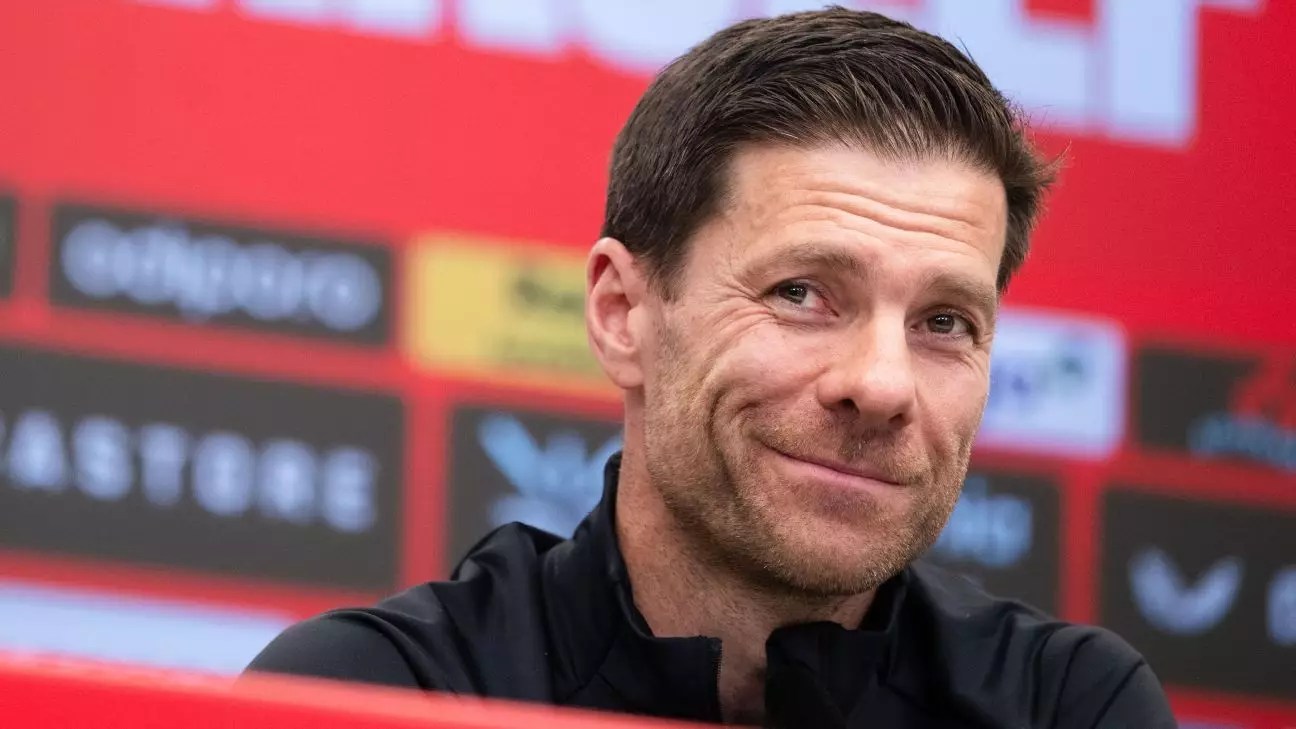Xabi Alonso has officially announced his departure from Bayer Leverkusen at the conclusion of the current season, marking an emotional exit from a club he significantly transformed during his tenure. In a Wednesday press conference, Alonso expressed gratitude for a journey that has encapsulated three thrilling seasons with Leverkusen, culminating in a remarkable unbeaten campaign during the 2023-24 Bundesliga season. The news reverberates across football circles as the former Real Madrid midfielder prepares to plug into the demanding atmosphere of top-tier coaching, with whispers growing louder about his return to the Santiago Bernabéu.
During his time with Leverkusen, Alonso did more than just coach; he metamorphosed the team from potential relegation candidates to genuine title challengers. His style of play, emphasizing tactical acumen and fluidity, has been a breath of fresh air in German football. However, his immediate future looms uncertain, particularly as a source from Real Madrid suggested he is poised to take over managerial duties once Carlo Ancelotti vacates the position. Alonso’s conscientious decision to leave Leverkusen after just two more Bundesliga matches is both prudent and respectful, allowing for a heartfelt farewell amidst reflection on the past few years.
Proud Moments, Grateful Reflections
Alonso articulated a mix of pride and nostalgia in his farewell message, acknowledging the collective effort that has defined his time with Leverkusen. “It’s been an unbelievable, fantastic three years,” he reminisced, emphasizing the importance of a proper farewell as they square off against Borussia Dortmund. Such statements illuminate not just Alonso’s professionalism, but also his profound connection to the club and its supporters. The chemistry he nurtured with players and staff underscores his understanding of the human element in coaching—something that cannot be overlooked when dissecting his remarkable success.
The depth of his impact cannot simply be summed up by titles won or records set. The culture he fostered at Leverkusen has laid a solid foundation that future managers can build upon. Pep Guardiola, a former teammate and now a managerial giant, remarked on Alonso’s influence, claiming that no one was surprised by his success as a coach. “Going to Germany and fighting with Bayern Munich is so difficult,” Guardiola pointed out, underscoring the challenges Alonso has faced and what he has accomplished.
Anticipation for Madrid: A Homecoming
Even as Alonso refrains from diving deep into discussions about his future, the allure of a potential return to Real Madrid is undeniable. There’s an irreplaceable connection between Alonso and Madrid stemming from his distinguished playing career, and the prospect of him leading the team carries immense optimism. While Ancelotti is still at the helm, his time is viewed as numbered after significant setbacks in the Champions League and Copa del Rey. The impending reshuffle at Madrid creates fertile ground for speculation on whether Alonso will leap directly into the managerial role, or whether an interim coach will guide the side through their upcoming commitments.
There’s no denying that stepping into a position at a storied club like Madrid comes with immense pressure. Yet, if Alonso’s track record at Leverkusen is any indicator, he possesses the tactical sophistication and the emotional intelligence required to thrive in such a high-stakes environment. The challenge he’s likely to face involves managing the ambitious expectations of a club that has consistently sought European glory—an undertaking that will require more than just tactical ingenuity but also masterful interpersonal skills.
Legacy of Development: Coaching Philosophy
Alonso’s journey as a coach has been punctuated by a commitment to development—both for his players and himself. His reflections on the stages of growth during his time at Leverkusen highlight a deep understanding of the evolutionary nature of football management. As he ascended from lower divisions with Real Sociedad’s reserve team to the Bundesliga’s upper echelons, Alonso showcased a learning mentality, adapting his strategies in response to challenges.
This focus on gradual progression resonates strongly with modern football ideologies that emphasize player development as integral to long-term success. It seems clear that Alonso’s methodologies will be foundational to his approach at Madrid, should he secure the position. By valuing player growth alongside tactical readiness, he bolsters the potential for expansive success that aligns with the club’s legacy.
In the end, as Alonso bids farewell to Leverkusen, the excitement surrounding his next steps evinces a wider narrative of evolution and ambition in the footballing world—a narrative he will undoubtedly play a pivotal role in advancing.


Leave a Reply